Very Short Answers - Light, Science, Class 8 | Science Class 8 PDF Download
Q1: What makes things visible?
Ans: Light.
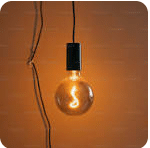 Light
Light
Q2: Can you see an object in the dark?
Ans: No.
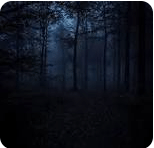 DarkQ3: What is a mirror?
DarkQ3: What is a mirror?
Ans: A smooth and shiny surface is called a mirror.
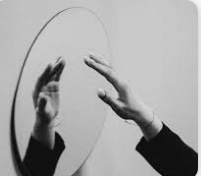 MirrorQ4: What kind of image is formed by a plane mirror?
MirrorQ4: What kind of image is formed by a plane mirror?
Ans: Virtual and erect image.
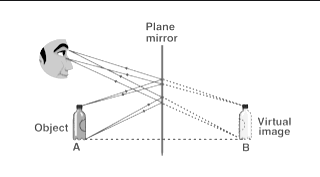 Q5: Where is the image formed by a plane mirror?
Q5: Where is the image formed by a plane mirror?
Ans: Behind the mirror.
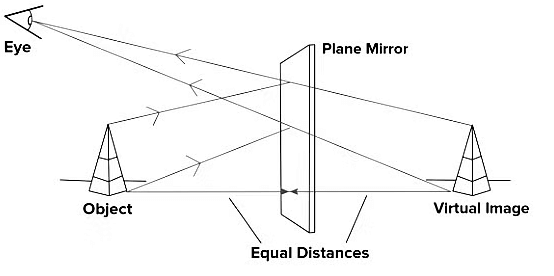 Q6: Where does the image form in our eyes?
Q6: Where does the image form in our eyes?
Ans: At Retina.
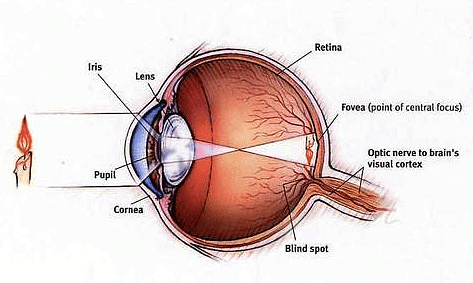 RetinaQ7: Where is no image formed?
RetinaQ7: Where is no image formed?
Ans: Blind spot.
Q8: For what time the image stays on the retina?
Ans: About 1/16th of a second.
Q9:Which bird is called night bird?
Ans: Owl is called night bird.
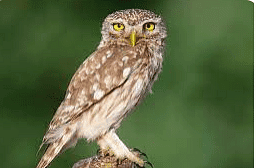 Owl Q10: Which surface shows regular reflection?
Owl Q10: Which surface shows regular reflection?
Ans: Smooth or regular surface.
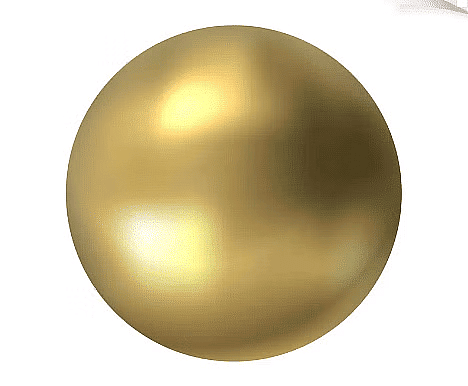 Regular SurfaceQ11: Which surface shows diffused reflection?
Regular SurfaceQ11: Which surface shows diffused reflection?
Ans: Rough or irregular surface.
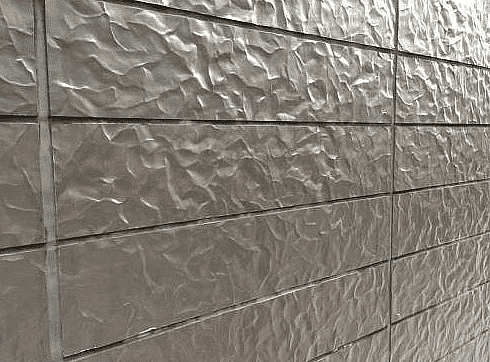 Irregular SurfaceQ12: What is the size of the image formed in a plane mirror?
Irregular SurfaceQ12: What is the size of the image formed in a plane mirror?
Ans: Same size of the object.
Q13: How many mirrors are used in Kaleidoscope?
Ans: Three mirrors.
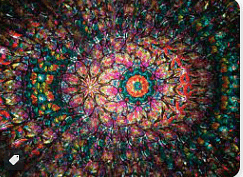 KaleidoscopeQ14: How many colours are there in the spectrum of light?
KaleidoscopeQ14: How many colours are there in the spectrum of light?
Ans: Seven colours.
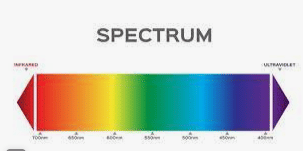
Q15: How many colours are there in white light?
Ans: Seven colours.
Q16: What is the shape of the human eye?
Ans: Spherical shape.
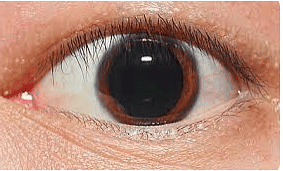 EyeQ17: What is the front transparent part of the eye called?
EyeQ17: What is the front transparent part of the eye called?
Ans: Cornea.
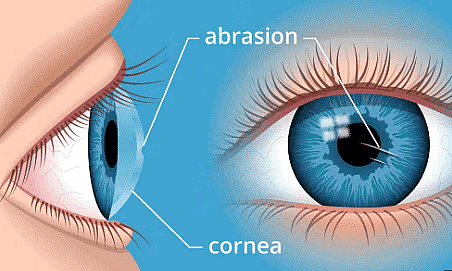 CorneaQ18: What is the small opening in the iris called?
CorneaQ18: What is the small opening in the iris called?
Ans: Pupil.
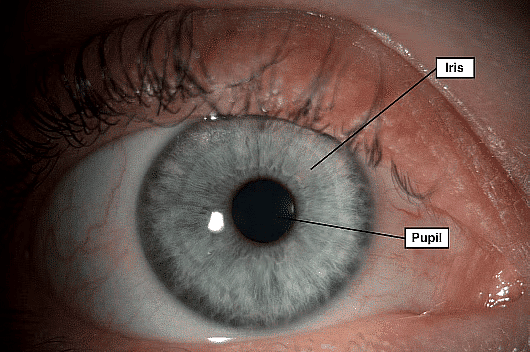 PupilQ19: Which part of the eye is controlled by the iris?
PupilQ19: Which part of the eye is controlled by the iris?
Ans: Pupil.
Q20: What is the coloured part of the eye called?
Ans: Iris.
Q21: What is the function of the iris?
Ans: Iris controls the amount of light entering the eye through the pupil.
Q22: Which part of the body sends the sensation felt to the brain?
Ans: Nerve cells.
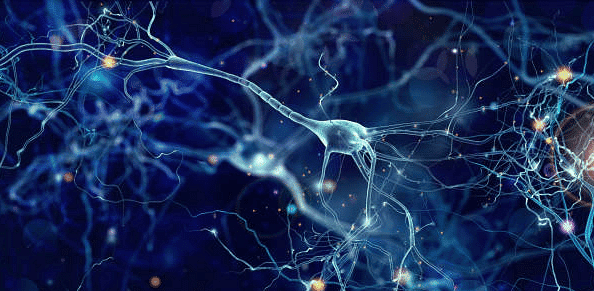 Nerve cellsQ23: How many kinds of nerve cells are there in the retina?
Nerve cellsQ23: How many kinds of nerve cells are there in the retina?
Ans: Two (cones and rods).
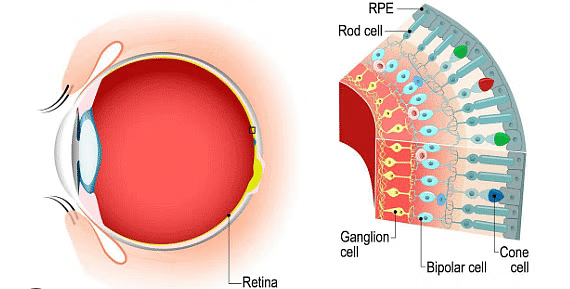 Two (cones and rods).Q24: Which cells of the retina are sensitive to bright light and colour?
Two (cones and rods).Q24: Which cells of the retina are sensitive to bright light and colour?
Ans: Cones.
Q25: Which cells of the retina are sensitive to dim light?
Ans: Rods.
Q26: What is the distinct vision of the normal eye?
Ans: 25 cm.
Q27: Who invented the system of reading for blind men?
Ans: Braille.
 BrailleQ28: Which element is used at the back of plane mirror?
BrailleQ28: Which element is used at the back of plane mirror?
Ans: Silver
Q29: The distance between the object and its image formed by a plane mirror appears to be 18 cm. What is the distance between mirror and the object?
Ans: 9 cm
Q30: A ray of light is incident on a mirror at an angle of 40°. What is the angle of reflect?
Ans: 40°
Q31: Name a device which works on the principle of multiple reflection.
Ans: Periscope
 PeriscopeQ32: Give an example of night bird.
PeriscopeQ32: Give an example of night bird.
Ans: Owl
Q33: What do we call the image that cannot be obtained on a screen?
Ans: Virtual
Q34: Name the liquid found between the cornea and lens.
Ans: Aqueous humour
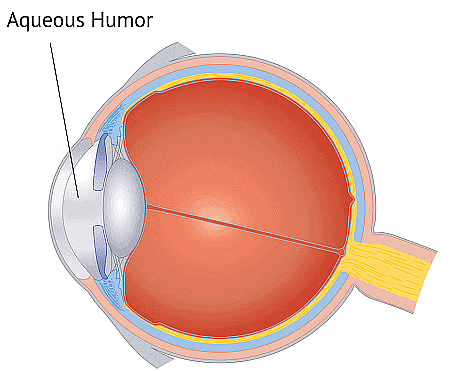 Aqueous humourQ35: Name the liquid found between the lens and the retina.
Aqueous humourQ35: Name the liquid found between the lens and the retina.
Ans: Vitreous humour
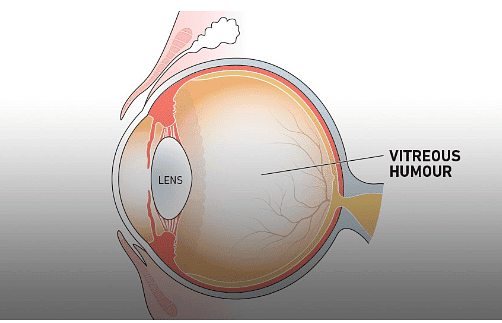 Vitreous Humour
Vitreous Humour
|
90 videos|296 docs|44 tests
|
FAQs on Very Short Answers - Light, Science, Class 8 - Science Class 8
| 1. What is light? |  |
| 2. How does light travel? |  |
| 3. How does light interact with objects? |  |
| 4. How does light enable us to see objects? |  |
| 5. What is the speed of light? |  |






















